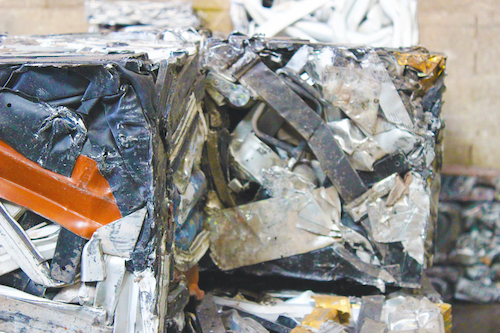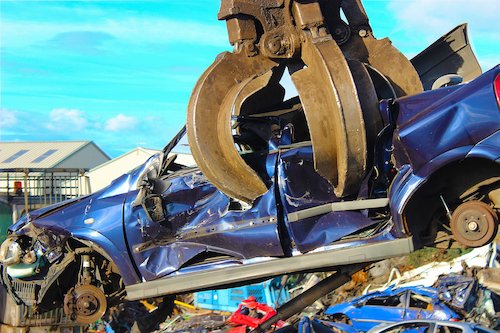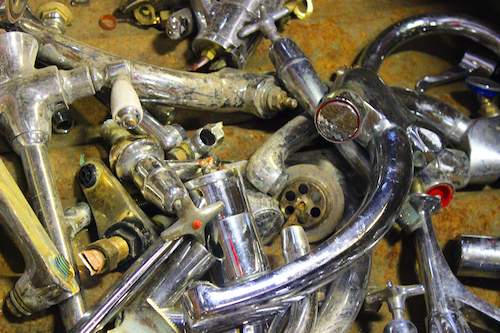Metal is an incredibly versatile material that is used the world over in countless applications. From construction to electronics, metal is essential due to the many qualities it possesses. We aim to be able to assist you and answer your questions, so we have put together an ‘ultimate guide’ to help answer any questions you may have about this incredible material.
Where Does Metal Come From?
Pure metals are a naturally occurring material that come from the earth’s crust. When we find these materials, they usually take the form of an ore, which means that they are combined with rock and other minerals. The ore then needs to be extracted and separated from the rock.
In the case of metals such as gold, this may have already been done by the elements. This is why gold can sometimes be found in river beds, as the movement of the water has already broken the rock apart, releasing the gold within.
What Are The Properties of Metal?
Different metals hold different properties which make them ideal for different applications. However, the typical properties of metal include:
- Lustrous
- Hard
- High density
- High tensile strength
- High melting point
- Good conductor of heat and electricity
Of course, different metals can have wildly different levels of properties such as hardness – metals such as potassium and lithium are soft enough to be cut with a knife, whereas metals such as titanium and chromium are incredibly hard and strong.
How is Metal Recycled?
As most metals have different properties, they have to be processed in different ways. As many products use an assortment of metals and other materials, they must first be separated. We do this with the aid of Eddy Current Separators which use magnets. They may then be shredded depending on the type of the metal.
Ultimately, the metals are melted down so they can be reformed into new metal products again and again.
What Metals Can Be Recycled?
Nearly all metals can be recycled, though they may require different methods for recycling. Metals that can be recycled include:
- Aluminium
- Copper
- Steel
- Tin
- Cast Iron
Radioactive metals are, not surprisingly, not recyclable, as are metals containing mercury.
Which Metals Are Used in Cars?
Cars are made up of a huge range of different materials, so recycling can be challenging. Different models and manufacturers use different metals, but typically, you can expect to see steel and aluminium as well as copper wiring in most cars.
These parts can be recycled through end of life vehicle recycling, however there are some parts that cannot be recycled. These include:
- The lead-acid battery
- The LPG tank
- The catalytic converter
- The switches that contain mercury
- The oils, fluids and liquids
Why Should You Recycle Metal?
There are many benefits to recycling metals such as the positive environmental impact. Making metal from ore requires many more resources, so releases a larger amount of greenhouse gases as opposed to the process for recycling metal.
When it comes to vehicle recycling, the environmental factor comes not only from the recycling of the scrap metal, but from the fact that the vehicles can be depolluted, with elements such as fuel, the catalytic converter and the switches that contain mercury being responsibly disposed of. This means that harmful chemicals and toxins are prevented from entering the environment.
Is Metal Bad For The Environment?
While metal itself may not necessarily be bad for the environment, the process of mining metals can have a huge impact. From physical disturbances to the landscape to soil and water contamination, there are numerous risks associated with the mining of metal ores. This is why it is so important to recycle scrap metal.
What Are Ferrous and Non-Ferrous Metals?
Ferrous and non-ferrous metals have different properties, so they must be treated differently during the recycling process.
A ferrous metal is a metal that has a mixed composition which mostly contains iron. These metals are alloys and are magnetic. Ferrous metals include:
- Cast iron
- Wrought iron
- High carbon steel
A non-ferrous metal, on the other hand, does not contain iron. This means that they are not magnetic and have different properties, such as the fact that they can withstand moisture without rusting. Non-ferrous metals include:
- Aluminium
- Copper
- Stainless steel
How Can I Recycle Metal?
At Morecambe Metals, we offer a number of scrap metal recycling services, such as vehicle recycling and industrial dismantling. We also offer a scrap metal collection service, making it easier to responsibly recycle scrap metal.
Whether you are looking to remove scrap metal from your factory or end of life vehicle recycling, you can contact a member of our team who will be able to advise you on your next steps.
For more information about our services and how you can benefit from them, make sure to get in touch by calling 01524 69191 or by emailing us at info@morecambemetals.co.uk. Alternatively, you can request a quote through our contact form and we will get back to you as soon as possible.





